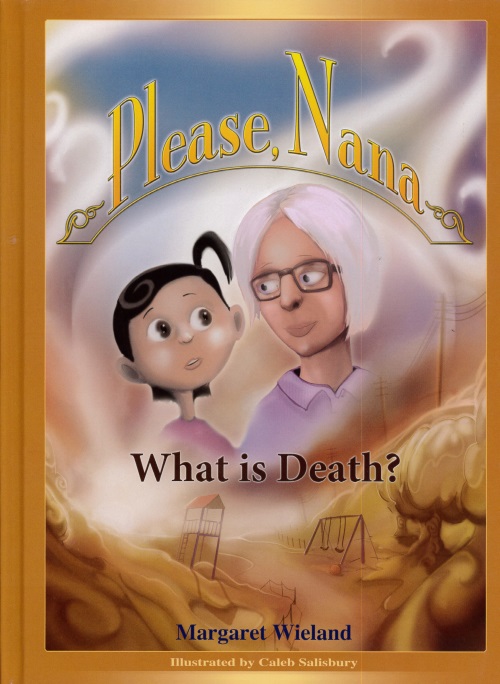Feedback archive → Feedback 2012
Why do some Christians suffer more than others?

Some Christians suffer more than others. It’s a fact of life. But is God unjust for making it like this? CMI’s Lita Sanders answers a correspondent who asks that question.
Stephan B. from Canada wrote:
Why is it that one christian may have an nice and easy life full of blessings while another christian who is doing his best to walk with God and serve Him has nothing but hardships and no easy life … things he couldn’t control like death of parents among many things? Where is God’s love and justice here?
CMI’s Lita Sanders wrote:
Dear Stephan,
Most of the apostles ended up giving their lives as martyrs for the faith, and John was exiled. Many early Christians were killed for their faith, and even more suffered loss of possessions and estrangement from family and former friends. Today in Middle Eastern countries, someone who converts to Christianity from Islam may face the death penalty, and someone in China’s underground churches may be imprisoned and face substantial persecution. Christians in Africa are mercilessly attacked, kidnapped, and enslaved by their non-Christian neighbors.
Peter tells us “Beloved, do not be surprised at the fiery trial when it comes to test you, as though something strange were happening to you” (1 Peter 4:12). And John says, “Do not be surprised, brothers, that the world hates you” (1 John 3:13). An elementary understanding of the treatment of Christians through history and more importantly the Bible’s teaching makes it clear that Christians will not always be spared the trials and pain of this life.
I think the vast majority of the time, the suffering that the Christian goes through is generally able to be attributed to the Curse on creation, which is where all sorts of bad things come from. We know that God hates all these evil things, and He will eventually completely eradicate all of them.
You ask “Where is God’s love and justice?” God’s love is with that Christian, and has been shown first and foremost in Christ’s sacrifice for him. I find Romans 8 immensely comforting when contemplating these issues, especially the following:
For I consider that the sufferings of this present time are not worth comparing to the glory that is to be revealed to us. For the creation waits with eager longing for the revealing of the sons of God. For the creation was subjected to futility, not willingly, but because of him who subjected it, in hope that the creation itself will be set free from its bondage to corruption and obtain the freedom of the glory of the children of God. For we know that the whole creation has been groaning together in the pains of childbirth until now. And not only the creation, but we ourselves, who have the firstfruits of the Spirit, groan inwardly as we wait eagerly for adoption as sons, the redemption of our bodies. For in this hope we were saved. Now hope that is seen is not hope. For who hopes for what he sees? But if we hope for what we do not see, we wait for it with patience.

Likewise the Spirit helps us in our weakness. For we do not know what to pray for as we ought, but the Spirit himself intercedes for us with groanings too deep for words. And he who searches hearts knows what is the mind of the Spirit, because the Spirit intercedes for the saints according to the will of God. And we know that for those who love God all things work together for good, for those who are called according to his purpose. For those whom he foreknew he also predestined to be conformed to the image of his Son, in order that he might be the firstborn among many brothers. And those whom he predestined he also called, and those whom he called he also justified, and those whom he justified he also glorified. (verses 18–30).
Stephan, the reason why I find these verses so comforting is that it acknowledges that there is pain and there are bad things in the world—and it doesn’t try to downplay that. But God isn’t a distant unfeeling deistic god—the Spirit rather prays for us “with groanings too deep for words”. These verses also point us to our hope in the future—all things will work for good (ultimate good, not necessarily something we can point to in our own lifetime) for those who love God and are called according to His purpose (and if this isn’t a promise about the things that seem so mind-bogglingly bad that it’s hard to believe any good can come out of it, it wouldn’t be much of a promise at all). This is a promise that can only ultimately be fulfilled in the Resurrection—if there were no resurrection, everything would end in death for the believer, regardless of any temporary comfort. But we have this great eternal hope for a coming world free from the bondage to corruption—regardless of any temporary suffering.
The hard part of this is that we don’t see any sort of ‘fairness’ in this life. It’s not hard for me to see some Christians doing really well—I think the far bigger ‘problem’ is unbelievers who curse God and seem to prosper in this life, while Christians are starving and dying and being killed for their faith. But we have the promise from God Himself that we will inherit an eternal Kingdom. Human beings are eternal in the sense that we don’t end. Someone who is extraordinarily long-lived today may live a little over 100 years old—but our eternity will last ‘billions and trillions of times longer’ than that (if I may use a finite example to try to get across infinite time). Our future makes the evolutionists’ interpretation of billions of years in the past seem boring and short by comparison! We might suffer hardship for our whole life here, but then go to an eternal reward for our faithfulness in those trials. And even if it took a thousand years of paradise to make up for the hundred years of suffering—that’s nothing on the eternal timescale! In contrast, someone who lives a comparatively easy life in this world without Christ is going to eternal punishment that will make their ease here look like nothing. I think with these questions, it is the most important to look from an eternal perspective.
I could keep rambling for a while on this topic, but I’ll stop myself here. If you’re interested in a book on this topic, we have Carl Wieland’s Beyond the Shadows, which looks at a lot of these sorts of issues from his own personal experiences of physical suffering. But more than anything, I would encourage you to open your Bible up. Read the Psalms, read the New Testament, read Revelation. The Bible is not silent about the problem of suffering, about some seeming to prosper unjustly and others seeming to suffer unjustly. And we are promised that God will make everything right in the end.
I hope these thoughts have been helpful for you.
Sincerely,
Lita Sanders






Readers’ comments
Comments are automatically closed 14 days after publication.